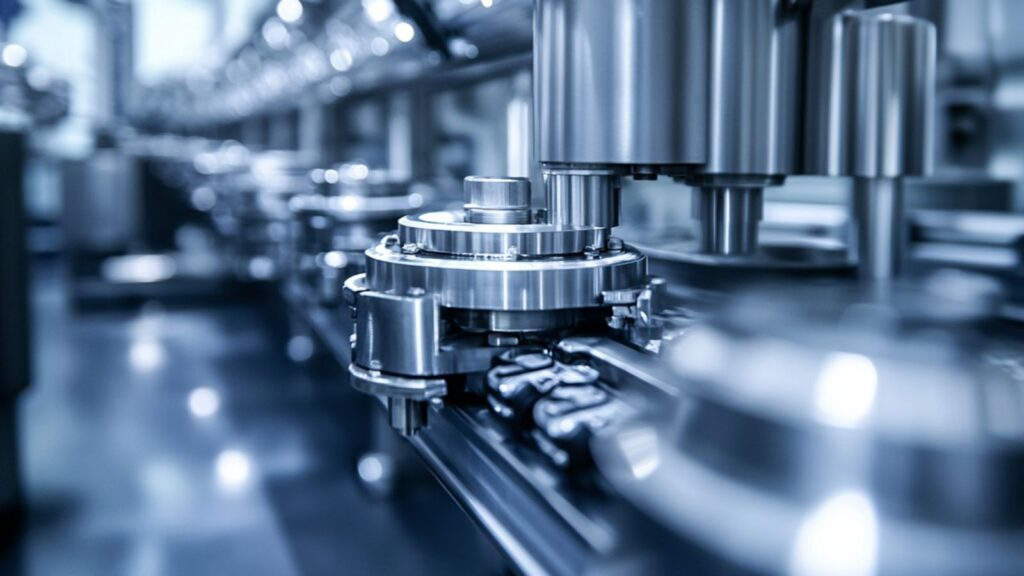In the fast-paced world of manufacturing and production, efficiency and precision are paramount. One of the critical components in achieving these goals is the use of filling machines. These machines are essential in various industries, from food and beverage to pharmaceuticals and cosmetics, where they ensure that products are filled accurately and consistently. As businesses strive to meet increasing consumer demands, the choice of the right filling machine becomes crucial. This article delves into the key features to consider when selecting industrial filling machines, helping you make an informed decision that aligns with your operational needs and enhances productivity.
Key Features to Look for in Industrial Filling Machines
When it comes to selecting the ideal filling machines for your business, several critical features must be considered to ensure optimal performance and efficiency. These features not only affect the machine’s functionality but also its adaptability to different production environments.
- Type of Filling Technology: The first consideration is the type of filling technology that suits your product. There are various technologies available, such as gravity filling, piston filling, and vacuum filling. Each technology has its advantages and is suited for specific types of products. For instance, gravity filling is ideal for free-flowing liquids, while piston filling is better for viscous products like creams and pastes.
- Material Compatibility: The materials used in the construction of the filling machine should be compatible with the products being filled. This is especially important in industries like food and pharmaceuticals, where hygiene and safety are paramount. Stainless steel is a common choice due to its durability and resistance to corrosion.
- Speed and Accuracy: The speed of the filling machine is a crucial factor, particularly for high-volume production lines. However, speed should not compromise accuracy. Advanced filling machines are equipped with precision controls to ensure that each container is filled to the exact required level, minimizing waste and ensuring consistency.
- Flexibility and Scalability: As businesses grow, their production needs may change. A good filling machine should be flexible enough to handle different container sizes and product types. Additionally, it should be scalable, allowing for upgrades or modifications to meet increased production demands without requiring a complete overhaul of the equipment.
Ensuring Compliance and Quality Control
In industries where regulatory compliance is critical, such as pharmaceuticals and food production, filling machines must adhere to stringent quality standards. This ensures not only the safety and efficacy of the products but also the credibility of the brand.
- Regulatory Standards: Filling machines should comply with industry-specific regulations, such as FDA guidelines for food and pharmaceuticals. Compliance ensures that the machines are designed and operated in a manner that meets safety and quality requirements.
- Quality Assurance Features: Modern filling machines often come equipped with quality assurance features such as automated inspection systems. These systems can detect and reject containers that do not meet the specified fill levels or have defects, ensuring that only high-quality products reach the market.
- Maintenance and Support: Regular maintenance is essential to keep filling machines operating at peak efficiency. Choosing a machine from a reputable manufacturer that offers comprehensive support and maintenance services can significantly reduce downtime and extend the lifespan of the equipment.
Cost Considerations and Return on Investment
Investing in filling machines is a significant decision that involves careful consideration of costs and potential returns. While the initial investment may be substantial, the long-term benefits often justify the expense.
- Initial Investment vs. Long-term Savings: While high-quality filling machines may come with a higher price tag, they often offer better efficiency, durability, and lower maintenance costs. Over time, these factors can lead to significant savings and a higher return on investment.
- Energy Efficiency: Energy-efficient machines can reduce operational costs by consuming less power. This not only lowers utility bills but also contributes to a more sustainable production process, which is increasingly important in today’s environmentally conscious market.
- Customization and Upgrades: The ability to customize and upgrade filling machines can enhance their value. Machines that can be easily adapted to new products or production methods can provide a competitive edge and ensure that the equipment remains relevant as market demands evolve.
In conclusion, selecting the right filling machines involves a comprehensive evaluation of various factors, including technology, compliance, and cost. By carefully considering these aspects, businesses can choose machines that not only meet their current needs but also support future growth and innovation.


